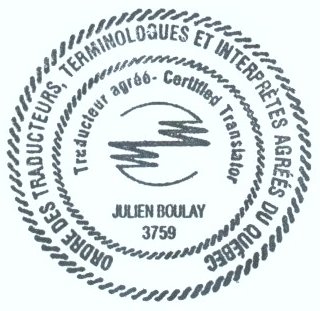What to expect?
So you want to have something translated, and you don't know what to expect? Here are some tips.
They apply not only to freelance translators and translation firms, but in many cases to your organization's own in-house translators.
Decide on the subject field of the document you want translated. What languages is the document to be translated from and into? Most translators work from one or more languages but only into their mother tongue.
Once you have a telephone number to call, you can simplify things for yourself and the translator if you have some information on hand. Some questions the translator is likely to ask:
And some questions you may want to ask:
- What experience does he or she have in this field (other customers, studies, previous non-translation work experience)?
- Translators can also revise work that has been written by you or anyone else. What rate does he or she charge for revision?
- Does he or she bill by the word or by the hour, and what is the rate, in either case?
- Would you like an estimate in writing before the translator begins the work?
- What is included? Proofreading, for instance? What is the procedure if you have some last-minute changes, or minor changes after the work is delivered?
- Can the translator work with the word-processing software you use?
- Would you like a printed copy of the translation, or is a faxed copy or an e-mailed file enough?
And finally, some food for thought:
- When you're dealing with a translator outside your company, you may wish to sign a simple contract. There's no harm in asking for something in writing. For long jobs, you may wish to agree on partial deliveries (and partial payments) along the way.
- It never hurts to have someone in your company or unit look over the finished translation. You may have your own in-house jargon or turns of phrase, which the translator has no way of knowing. Any proposed changes should be checked with the translator, of course, to make sure that they are grammatical.
- Be sure to allow enough time for your translation. A translator's output will rise or fall substantially depending on the difficulty of the text and the translator's experience in the field. Also keep in mind that translators--even in-house translators--are often working on several jobs at once, and may not be able to get to yours right away. Give as much notice as possible of an upcoming job so you can be slotted into the translator's schedule.
- As a rule, translators are usually not word-processing experts or graphic artists. Don't expect a ready-to-print document, although some translators, such as myself, can come close.

